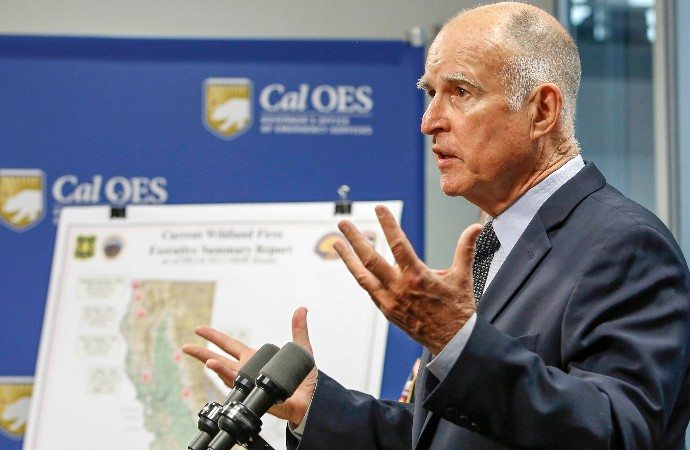Ministers of Justice from 25 countries have joined the Rome-based Community of Sant’Egidio, one of the new lay movements in the Catholic Church, to jointly issue an appeal to California Governor Jerry Brown to impose a moratorium on the death penalty in his state.
Should Brown comply, the moratorium could be short-lived, since Gavin Newsom will be sworn in as California’s new chief executive on Jan. 7. Yet Sant’Egidio insists the measure is urgent, since California presently has the largest death row in the Western world with 742 inmates awaiting execution.
The appeal came from a Sant’Egidio-sponsored conference at the Italian parliament on “A World Without the Death Penalty.” It was presented by Mario Marazziti, coordinator of Sant’Egidio’s campaign for a universal death penalty moratorium, representing the Community of Sant’Egidio and the Ministries of Justice from South Africa, Benin, Zimbabwe, and Malaysia.
“We launch an appeal to a great American politician, Jerry Brown, governor for four terms with a vision for the State of California, the state with the largest death row in the Western world in San Quentin: 742 death row inmates waiting for execution, among them innocent people - as the Vincente Benavides and Fred Watherton case have shown this year.”
Benavides is a Mexican national freed after nearly 26 years on death row after a reexamination of forensic evidence found he was not culpable for the charges of rape and sodomy upon which he’d been convicted. Weatherton’s conviction on two counts of murder, with special circumstance allegations, was overturned by the California Supreme Court on the basis of juror misconduct allegations.
“The appeal I launch, on behalf of this congress and the Ministers here gathered, is that the governor declare a death penalty moratorium and begin the process to commute all death sentences before leaving his office by the end of the year,” Marazziti said.
“It [would be] a gesture of great political wisdom that will strengthen the authoritativeness of the system of justice in California, a state where half of death sentences come from only 3 counties out of 53, [and] where they seem to be related more to geography than the nature of the crimes and those convicted for the crimes,” Marazziti said.
“I hope Governor Brown is willing to leave this legacy as a present to his citizens, to all Americans, to the world, and through this leaving a sign in history,” he said. “All hope we will soon be able to celebrate a death penalty moratorium where we will light up the Colosseum to celebrate California and the political courage of Governor Brown.”
In reality, if Brown were to take such a step, its significance would be largely symbolic. Of the 971 California death sentences recorded by the Death Penalty Information Center since 1978, only 13 condemned inmates have been executed, while Californians have paid more than $5 billion to maintain the system.
According to a report by the Death Penalty Information Center, the state would save $170 million each year by converting all death sentences to life without parole.
In July, the Catholic bishops of California came out in support of a ballot measure to end executions in the state altogether.
“Our commitment to halt the practice of capital punishment is rooted both in the Catholic faith and our pastoral experience,” a statement said.
“Our support to end the use of the death penalty is also rooted in our unshakeable resolve to accompany and support all victims of crime,” the bishops said. “They suffer the very painful consequences of criminal acts. With the violent loss of a loved one, a sword has pierced their heart. Their enduring anguish is not addressed by the state-sanctioned perpetuation of the culture of death.”
“Capital punishment has repeatedly been shown to be severely and irrevocably flawed in its application. In the long - but absolutely necessary - process of ensuring an innocent person is not put to death, we have seen many accused persons being exonerated as new forms of forensic investigation have enabled us to better scrutinize evidence,” they said.
“The high cost of implementing the death penalty has diverted resources from more constructive and beneficial programs both for rehabilitation and restoration of victims and offenders. Finally, repeated research has demonstrated that the death penalty is applied inconsistently along racial, economic and geographical lines,” the bishops said.

